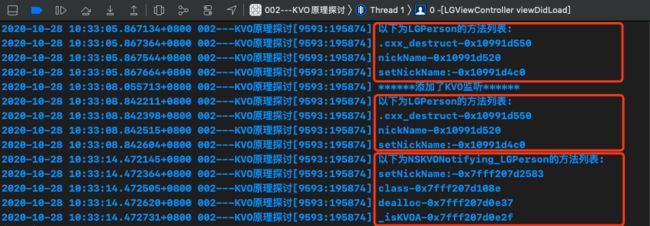- 2023全国电赛E题-目标控制与自动追踪系统-电控与图像处理代码(国一)
井incloud《stdi0》;
c语言单片机
本方案在2023年获得全国一等奖,红绿激光主控均采用openmv,能准确识别红绿激光,稳定性强,在初测与复测时均能稳定运行。以下是控制红色激光的openmv内置代码:importsensor,image,time,pyb,lcdfrompybimportUART,Pin,Timer,ServofrompidimportPIDpin1=Pin('P1',Pin.IN,Pin.PULL_DOWN)##
- 你相信命运吗,你对命运如何理解?
960927173172
首先给出结论:我个人是相信命运、运气这种说法的。拿破仑曾说:“没有机遇,能力就毫无意义。”我回归我自己的经历,我跟同村的发小,一起出门,她总能获得意外收获,同时走一条路,同样做一件事,他的运气就比我好,比如:我们同样在一起走,她能看到地上的钞票,我却看不到,同时是买一些刮刮乐,他能中奖,而我却中不到,这些都是凭借运气获得的,这些微乎其微的小事,也足以说明一个人的运气是多么重要,可见做一个事情其中掺
- 平庄哥弟温馨提示
小颖900529
2018、9、25、星期二姐姐您好:明日天气多云20/8℃空气质量优建议穿搭:双面尼、外套、卫衣图片发自App
- SPARKLE:深度剖析强化学习如何提升语言模型推理能力
摘要:强化学习(ReinforcementLearning,RL)已经成为赋予语言模型高级推理能力的主导范式。尽管基于RL的训练方法(例如GRPO)已经展示了显著的经验性收益,但对其优势的细致理解仍然不足。为了填补这一空白,我们引入了一个细粒度的分析框架,以剖析RL对推理的影响。我们的框架特别研究了被认为可以从RL训练中受益的关键要素:(1)计划遵循和执行,(2)问题分解,以及(3)改进的推理和知
- 专属于你的一份牵挂
叶梓Q
昨晚又是一整晚睡不着,对于我来说这也不是什么稀奇的事儿了。在我发表一篇日志后,闺蜜突然找我聊天说她睡不着有点烦躁,问其原因,她说害怕有一天我们会生疏了,我告诉她,以后我们会各自忙碌,可能见面会少,但是感情一直不会变,在心底我会永远留一份牵挂专属于她。我和闺蜜认识十年左右了,起初只是怯怯的走到她身边拉着她的小手说想和她做朋友,然而就一直持续十年之久,我们陪伴了彼此一整段青春,怎能说散就散。记得曾经告
- 【踩坑】Docker deamon.json 文件修改之后重启不生效
ku_code_ku
编程踩的坑docker容器运维
1.系统环境介绍ubuntu22.04_amddocker27.012.背景介绍最近在安装Docker,第一次尝试从官网上的教程上面安装Docker,很遗憾被墙了。下面是官网安装教程地址(避免入坑)https://docs.docker.com/engine/install/ubuntu/#install-using-the-repositoryhttps://docs.docker.com/en
- Nginx+Gunicorn部署Django项目
闻风听雨1562
Djangonginxgunicorndjango
1.项目文件传输和依赖安装1.1网络环境下pip安装依赖,离线则传输安装(略)2.Django设置2.1关闭调试模式,设置允许访问IP在项目同名路径下的settings中设置DEBUG=FalseALLOWED_HOSTS=['*']#允许所有地址访问2.2配置静态文件STATIC_URL='/static/'STATIC_ROOT=os.path.join(BASE_DIR,'static')#
- “福气”是啥样的?软萌可爱的“小福气”来啦,赶快迎春接福喽!
等一个奇迹
宫崎骏在《千与千寻》中描绘的那种光怪陆离的世界,令无数人一眼难忘,这不仅仅是因为它画面的精美,还因为故事的完美,更因为它展现了一个人所未见的奇妙领域,以及它所引起的情感共鸣。而我们中国的漫画,多数显得创作者过于急躁。在我曾写过的另一篇书评的评论区,有位读者对中国的漫画给出这样的评价:……国产漫画,现在很多都是为了赚钱而画,而根本不是精心地去打磨一个故事……我觉得这不但是现代美术专业人才的尴尬,更是
- 数据结构与算法学习 (08)字符串匹配--BF算法/RK算法
暱稱已被使用
BF算法也就是串的模式匹配算法,在主串中查找与模式T(副串)相匹配的子串,如果匹配成功,找到该子串在主串出现的第一个字符。模式匹配不一定是从主串第一个字符开始,可以在主串中指定起始位置。算法思想:将目标串S的第一个字符与模式串T的第一个字符进行匹配,若相等,则继续比较S的第二个字符和T的第二个字符;若不相等,则比较S的第二个字符和T的第一个字符,依次比较下去,直到得出最后的匹配结果。BF算法是一种
- PDF表格信息提取
StataPython数据分析
本文作者:王碧琪文字编辑:钱梦璇技术总编:张邯在《提取PDF文本信息:入门》中,我们介绍了使用pdfminer提取PDF中的信息,其中提取的是文本内容,而对于表格内容,使用pdfminer会输出无格式的文本,不能保留表格格式,而pdfplumber就能很好的解决问题。本文将比较两个方法的差异。待处理的PDF文档中的表格如下:image一、pdfminer我们用以下程序使用pdfminer进行提取(
- 基于Socket来构建无界数据流并通过Flink框架进行处理
每天五分钟玩转人工智能
Flink技术实战flink大数据Flink分布式无界数据
本文重点随着大数据技术的不断发展,实时数据流处理已成为企业应对海量数据、实现快速决策的关键技术。ApacheFlink是一个开源的流处理框架,它能够对无界数据流进行高效的、精确的处理。本文将介绍如何通过Socket构建无界数据流,并利用Flink框架进行无界流处理。基于Socket构建无界数据无界数据指的是源源不断产生的数据,这些数据通常来自各种实时数据源,如用户行为日志、传感器数据等。Socke
- 《一线带班》读书笔记(四)
河南张俊红
第四章抓作业做为一线老师,花时间最多的不是课堂教学,而是作业、作业。每天可能最头疼的就是学生的作业了,对于优秀生来说,老师布置的作业不算什么,三下五除二,一会儿就写好了,而对于班里个别的学困生来说,简直就是一场灾难,从早上磨蹭到晚上,却很难完成,有什么好办法吗?管老师的经验是:六问。第一问:作业要求怎么安排?可以分“三个阶段”整体考虑,第一阶段:及时+工整,人生及时第一,工整第二。优等生工整第一,
- 【c++】提升用户体验:问答系统的交互优化实践——关于我用AI编写了一个聊天机器人……(12)
gfdhy
算法数据结构c++c语言人工智能tf-idf
本期依旧使用豆包辅助完成代码。从功能到体验的转变上个版本已经实现了问答系统的核心功能:基于TF-IDF算法的问题匹配和回答。它能够读取训练数据,处理用户输入,并返回最相关的答案。但在用户体验方面还有很大提升空间。让我们看看改进版做了哪些关键优化:1.引导系统上个版本仅在启动时显示简单的"Hello!输入'exit'结束对话。"提示,对于初次使用的用户来说不够友好。改进版增加了:详细的欢迎信息和功能
- 读书随笔《硅谷超级家长课》
悦忆抒
这本书写的是一个妈妈培养出了三个优秀的女儿,方法其实很简单。她的方法就是五个原则——“TRICK教养法”,让孩子做自己的CEO。1.通过相信孩子培养孩子的信任能力,让孩子感受自身的价值。2.对孩子给予最大的尊重,但是不能降低要求。3.告诉孩子他可以是独立的。4.在信任、尊重和独立的前提下会合作。5.言传不如身教。不要把焦虑传给孩子。教育孩子是很艰巨的任务,要正确引导,善于发现孩子的优点,不要因为孩
- 读李笑来老师推荐的《随机漫步的傻瓜》所记
长期主义者庆福
1.现实⽣活中,会出现⼈们误把运⽓当做个⼈能⼒,请举例说明(1)买彩票。看到许多爷爷奶奶会因为无聊去研究彩票,中了第一次后,可能觉得是运气。但是中了第二次、第三次…可能就不觉得是运气了,可能有一部分是自己研究每天晚上可能开奖的号码和生肖经验得来的。这也导致了他们会在买彩票的中与亏中来来回回,亏了不甘心,想再下一次中赢回来;中了,会很开心,但是这多数是靠运气的(他们觉得是有自己一部分的能力的功劳),
- vue2 面试题及详细答案150道(121 - 130)
《前后端面试题》专栏集合了前后端各个知识模块的面试题,包括html,javascript,css,vue,react,java,Openlayers,leaflet,cesium,mapboxGL,threejs,nodejs,mangoDB,MySQL,Linux…。前后端面试题-专栏总目录文章目录一、本文面试题目录121.Vue2中如何实现组件的动态样式绑定?122.Vue2中如何处理跨域请求
- 《大衣换草鞋,我千亿物资亏到死!》沈括沈国伟&全集目录-在线阅读
小说推书
《大衣换草鞋,我千亿物资亏到死!》沈括沈国伟&全集目录-在线阅读主角:沈括沈国伟简介:大衣换草鞋,我千亿物资亏到死!可以关注微信公众号【放心文楼】去回个书号【24】,即可免费阅读【大衣换草鞋,我千亿物资亏到死!】小说全文!看着爷爷的背影消失在视线之中,我这才退回到店里面,打开了视频。看着爷爷艰难的上山,我揪心得紧,直到看到苏长春带着几个战士从上山迎来,接过爷爷身上的物品,我这才露出欣慰的笑容。“沈
- 一个人住,千万要注意
空心白竹
1林子大了,什么鸟都有,出门在外,安全最重要。女孩子一个人住一定要注意自身安全,学会保护好自己。昨天看到一个视频,看完很鄙视这种男人;男的一直在租房门口蹲点,看到隔壁女孩出门路过强行抱进自己房里,后面的可想而知........看到这样的人渣真的不知道说什么好,不仅毁了别人也同样害了自己。如果真的那么饥渴完全可以外出花钱就能解决的事,非得犯法,只能说这类人脑子有问题。一个人住一定要留个心眼,更不要引
- “陕西男子活埋母亲”事件:获救后母亲担心儿子被判重刑
你就是你自己
近日,陕西靖边“男子将母亲活埋进墓坑”事件持续引发关注。1.事情的始末是这样的:2020年5月2日,58岁的马某在自己家中将瘫痪在床79岁的母亲王某芳用手推车拉走,次日凌晨2时许独自一人推着车子回到家中,家人见状向其询问母亲去向,马某某谎称送往庆阳的客车上去亲戚家了。凌晨4点左右,马某离开家人的视线,独自一人出走失联至今未归。5日上午,马某的妻子张某报警后,警方立即对马某和其母亲进行寻找。在找到马
- 事缓则圆--05-13
季中
很多的事,只有留给时间来解决小时候,记得我父亲给我讲一句话:事缓则圆。很多的事,如果不是缓一下,先思考一些,则永远都做不圆,甚至完全做不成。很多的事,世界上的万事与万物,都有成住坏空这几个阶段,就象台风一样,从空空的海面上升起来,以极大的能量带着强烈的降水,横扫着沿路上的一切。似乎不可一世,但是要不了多久,就会慢慢衰弱,到了最后,消失在某一个地方,除了一些雨水,什么也不会剩下。还有一些事,象是20
- 离婚后对方纠缠不休怎么办?
d5c0d6b5c9b5
离婚后,对方纠缠不休的情况五花八门,总结起来,骚扰者可以划分为以下几个派别。第一类,温和派的,这一派人离婚了才发现原配的好处,于是重新开始追求前配偶,希望和前配偶可以重续前缘,破镜重圆。虽然前配偶对他一再拒绝,但他还是死缠烂打,绝不放过;第二类,极端派的,这一派人虽然知道双方已经离婚了,但还是不准前配偶和其他异性交往,不准前配偶再次恋爱和结婚,如果前配偶有了新的异性朋友,他就想方设法的去破坏和干预
- 多变的天气
啊大甘
多变的天气近几日广东的天气变的有些让人措手不及,从上周开始气候就不稳定了。这边的空气比较潮湿,我也是第一次见到这边所谓的回南天。上周六一整天都是湿润的天气,虽然外面没有下雨但是空气非常湿润,从周五晚开始整间屋子都是湿润的,地板都积了一层水。我反反复复用拖把擦拭了几次,都是湿润的。刚好水渍少一些了,不到两个时辰又是一层水。这种天气也是非常的奇怪,也许在我们那边没有这种天气,所以那晚我竟彻夜失眠。总觉
- 枕一瓣落花梦一个烟雨中的人
一抹繁华123
流年的岸边等待是一场花开听过一帘烟雨看过一窗花开花落轻轻走过是谁的声音飘落是一瓣桃花的深红浅红落花无声流水不语指尖是谁的滑落散落一地的忧伤一季烟雨还有多少远去的回忆拾一瓣落花剪一缕月光听风吹落花香一缕枕一瓣落花梦一个烟雨中的人
- 风的足迹
笔下耕耘
曾经打搅了我的睡意尔后又令我百感交集朦胧中告诉我一个讯息尔后可能是一场暴雨这位信使虽然那么简单没有形状更不会言谈却将万物融入它的港湾那嘈杂的刮动声必然是人间最普遍的赞叹那优雅的花草浓绿的树木不正是它的遗产吗到了冬日白雪飘扬之时有了它岂不令雪景更加浪漫殷实送给寒冷一件完美的衣衫这就是风的魅力处处都有的画卷只要有热爱就有成为诗人的一天图片发自App
- 每日琐记(2021-10-23晨间日记)
雪山牧场
今天是什么日子起床:就寝:天气:心情:纪念日:任务清单今日完成的任务,最重要的三件事:1、读完《邓小平传》。2、看电影《校园风云》,崔西为了当上学生会长,费尽心机,最后如愿以偿,却发现毕业时找她签名的学生很少。改进:习惯养成:周目标·完成进度学习·信息·阅读健康·饮食·锻炼人际·家人·朋友工作·思考最美好的三件事1.2.3.思考·创意·未来
- 林兰书新媒体:一个新手如何做直播?主播有哪些聊天技巧?
林兰书自媒体
大家好,我是兰书,今天跟大家分享下主播有哪些聊天技巧除了多笑,新手主播也要考虑更多丰富的表情和动作:比如适当的剪刀手卖萌,手比爱心的温馨,吐舌头的调皮。介绍产品中途也可以唱唱歌,增加一些灵动的小手势和表情,这会让买家觉得你直播投入,增添很多个人魅力。不要小看这些细节,这些细节让粉丝们受到了感官刺激,不仅感受到你作为主播的积极与热情,更容易对你产生好感,从而更有意愿购买你推荐的产品。一、多积累专业知
- “三及时”做好干部人事档案材料收集整理工作
匀城诗人
干部人事档案材料的收集整理工作,是干部人事档案工作的基础环节,也是首要环节,干部人事档案材料是否真实准确、全面规范、鲜活及时,直接关系到各级党委(党组)和组织人事等有关部门在党的组织建设、干部人事管理、人才服务等工作中能否全面的、历史的、了解干部、考察干部和使用干部。及时收集、鉴别、归档干部人事档案材料,就成为保障干部人事档案材料真实性、完整性、有效性的重中之重。及时收集,确保档案材料鲜活。干部人
- 数字美元与全球支付革命:稳定币的兴起与全球金融格局的重塑
boyedu
加密货币金融区块链数字货币加密货币
一、数字美元的崛起:美国战略布局与全球竞争1.数字美元的定位与战略意义数字美元作为美国构建“数字美元帝国”的核心工具,旨在通过区块链技术实现美元的数字化发行与流通,巩固其全球储备货币地位。其核心逻辑在于:技术赋能货币主权:利用区块链的不可篡改、可追溯特性,提升美元跨境支付的效率与透明度,降低对SWIFT等传统系统的依赖。金融霸权延伸:通过数字美元,美国可更精准监控全球资金流动,强化对国际金融体系的
- 元宇宙:中国数字经济的新赛道——基于游戏生态、AI与区块链的创新实践
boyedu
元宇宙域名游戏人工智能区块链元宇宙
引言:数字经济时代的“新大陆”在数字技术的浪潮中,元宇宙正从科幻概念跃升为全球科技竞争的焦点。中国,作为全球数字经济规模第二大的经济体,正以独特的路径探索元宇宙的发展——以游戏生态为起点,融合人工智能(AI)与区块链技术,构建一个虚实融合的数字新世界。这一路径不仅契合中国在5G、AI、区块链等领域的技术积累,更与“数字经济”“新质生产力”等国家战略形成共振。本文将从技术融合、经济价值、社会影响三个
- 2022年8月24日星期三晴
哥德巴赫猜想
开学倒计时今天晚上开紧急家长会,班主任李老师主持召开,入会者:曹馨艺,馨艺爸爸以及全班其他同学和家长。会议内容主要有三部分:一:防溺水安全和交通安全二:开学需要准备的工作三:签署承诺书悠闲惬意的生活过得特别快,一眨眼,两个月的假期马上就要结束了,我问馨艺假期的感受和现在的心情,她说:“真得还想向天再借两个月”。这真是‘心似平原走马,易放难收’这两个月的假期还没玩够。不管玩够没玩够,这假期马上就要结
- Java常用排序算法/程序员必须掌握的8大排序算法
cugfy
java
分类:
1)插入排序(直接插入排序、希尔排序)
2)交换排序(冒泡排序、快速排序)
3)选择排序(直接选择排序、堆排序)
4)归并排序
5)分配排序(基数排序)
所需辅助空间最多:归并排序
所需辅助空间最少:堆排序
平均速度最快:快速排序
不稳定:快速排序,希尔排序,堆排序。
先来看看8种排序之间的关系:
1.直接插入排序
(1
- 【Spark102】Spark存储模块BlockManager剖析
bit1129
manager
Spark围绕着BlockManager构建了存储模块,包括RDD,Shuffle,Broadcast的存储都使用了BlockManager。而BlockManager在实现上是一个针对每个应用的Master/Executor结构,即Driver上BlockManager充当了Master角色,而各个Slave上(具体到应用范围,就是Executor)的BlockManager充当了Slave角色
- linux 查看端口被占用情况详解
daizj
linux端口占用netstatlsof
经常在启动一个程序会碰到端口被占用,这里讲一下怎么查看端口是否被占用,及哪个程序占用,怎么Kill掉已占用端口的程序
1、lsof -i:port
port为端口号
[root@slave /data/spark-1.4.0-bin-cdh4]# lsof -i:8080
COMMAND PID USER FD TY
- Hosts文件使用
周凡杨
hostslocahost
一切都要从localhost说起,经常在tomcat容器起动后,访问页面时输入http://localhost:8088/index.jsp,大家都知道localhost代表本机地址,如果本机IP是10.10.134.21,那就相当于http://10.10.134.21:8088/index.jsp,有时候也会看到http: 127.0.0.1:
- java excel工具
g21121
Java excel
直接上代码,一看就懂,利用的是jxl:
import java.io.File;
import java.io.IOException;
import jxl.Cell;
import jxl.Sheet;
import jxl.Workbook;
import jxl.read.biff.BiffException;
import jxl.write.Label;
import
- web报表工具finereport常用函数的用法总结(数组函数)
老A不折腾
finereportweb报表函数总结
ADD2ARRAY
ADDARRAY(array,insertArray, start):在数组第start个位置插入insertArray中的所有元素,再返回该数组。
示例:
ADDARRAY([3,4, 1, 5, 7], [23, 43, 22], 3)返回[3, 4, 23, 43, 22, 1, 5, 7].
ADDARRAY([3,4, 1, 5, 7], "测试&q
- 游戏服务器网络带宽负载计算
墙头上一根草
服务器
家庭所安装的4M,8M宽带。其中M是指,Mbits/S
其中要提前说明的是:
8bits = 1Byte
即8位等于1字节。我们硬盘大小50G。意思是50*1024M字节,约为 50000多字节。但是网宽是以“位”为单位的,所以,8Mbits就是1M字节。是容积体积的单位。
8Mbits/s后面的S是秒。8Mbits/s意思是 每秒8M位,即每秒1M字节。
我是在计算我们网络流量时想到的
- 我的spring学习笔记2-IoC(反向控制 依赖注入)
aijuans
Spring 3 系列
IoC(反向控制 依赖注入)这是Spring提出来了,这也是Spring一大特色。这里我不用多说,我们看Spring教程就可以了解。当然我们不用Spring也可以用IoC,下面我将介绍不用Spring的IoC。
IoC不是框架,她是java的技术,如今大多数轻量级的容器都会用到IoC技术。这里我就用一个例子来说明:
如:程序中有 Mysql.calss 、Oracle.class 、SqlSe
- 高性能mysql 之 选择存储引擎(一)
annan211
mysqlInnoDBMySQL引擎存储引擎
1 没有特殊情况,应尽可能使用InnoDB存储引擎。 原因:InnoDB 和 MYIsAM 是mysql 最常用、使用最普遍的存储引擎。其中InnoDB是最重要、最广泛的存储引擎。她 被设计用来处理大量的短期事务。短期事务大部分情况下是正常提交的,很少有回滚的情况。InnoDB的性能和自动崩溃 恢复特性使得她在非事务型存储的需求中也非常流行,除非有非常
- UDP网络编程
百合不是茶
UDP编程局域网组播
UDP是基于无连接的,不可靠的传输 与TCP/IP相反
UDP实现私聊,发送方式客户端,接受方式服务器
package netUDP_sc;
import java.net.DatagramPacket;
import java.net.DatagramSocket;
import java.net.Ine
- JQuery对象的val()方法执行结果分析
bijian1013
JavaScriptjsjquery
JavaScript中,如果id对应的标签不存在(同理JAVA中,如果对象不存在),则调用它的方法会报错或抛异常。在实际开发中,发现JQuery在id对应的标签不存在时,调其val()方法不会报错,结果是undefined。
- http请求测试实例(采用json-lib解析)
bijian1013
jsonhttp
由于fastjson只支持JDK1.5版本,因些对于JDK1.4的项目,可以采用json-lib来解析JSON数据。如下是http请求的另外一种写法,仅供参考。
package com;
import java.util.HashMap;
import java.util.Map;
import
- 【RPC框架Hessian四】Hessian与Spring集成
bit1129
hessian
在【RPC框架Hessian二】Hessian 对象序列化和反序列化一文中介绍了基于Hessian的RPC服务的实现步骤,在那里使用Hessian提供的API完成基于Hessian的RPC服务开发和客户端调用,本文使用Spring对Hessian的集成来实现Hessian的RPC调用。
定义模型、接口和服务器端代码
|---Model
&nb
- 【Mahout三】基于Mahout CBayes算法的20newsgroup流程分析
bit1129
Mahout
1.Mahout环境搭建
1.下载Mahout
http://mirror.bit.edu.cn/apache/mahout/0.10.0/mahout-distribution-0.10.0.tar.gz
2.解压Mahout
3. 配置环境变量
vim /etc/profile
export HADOOP_HOME=/home
- nginx负载tomcat遇非80时的转发问题
ronin47
nginx负载后端容器是tomcat(其它容器如WAS,JBOSS暂没发现这个问题)非80端口,遇到跳转异常问题。解决的思路是:$host:port
详细如下:
该问题是最先发现的,由于之前对nginx不是特别的熟悉所以该问题是个入门级别的:
? 1 2 3 4 5
- java-17-在一个字符串中找到第一个只出现一次的字符
bylijinnan
java
public class FirstShowOnlyOnceElement {
/**Q17.在一个字符串中找到第一个只出现一次的字符。如输入abaccdeff,则输出b
* 1.int[] count:count[i]表示i对应字符出现的次数
* 2.将26个英文字母映射:a-z <--> 0-25
* 3.假设全部字母都是小写
*/
pu
- mongoDB 复制集
开窍的石头
mongodb
mongo的复制集就像mysql的主从数据库,当你往其中的主复制集(primary)写数据的时候,副复制集(secondary)会自动同步主复制集(Primary)的数据,当主复制集挂掉以后其中的一个副复制集会自动成为主复制集。提供服务器的可用性。和防止当机问题
mo
- [宇宙与天文]宇宙时代的经济学
comsci
经济
宇宙尺度的交通工具一般都体型巨大,造价高昂。。。。。
在宇宙中进行航行,近程采用反作用力类型的发动机,需要消耗少量矿石燃料,中远程航行要采用量子或者聚变反应堆发动机,进行超空间跳跃,要消耗大量高纯度水晶体能源
以目前地球上国家的经济发展水平来讲,
- Git忽略文件
Cwind
git
有很多文件不必使用git管理。例如Eclipse或其他IDE生成的项目文件,编译生成的各种目标或临时文件等。使用git status时,会在Untracked files里面看到这些文件列表,在一次需要添加的文件比较多时(使用git add . / git add -u),会把这些所有的未跟踪文件添加进索引。
==== ==== ==== 一些牢骚
- MySQL连接数据库的必须配置
dashuaifu
mysql连接数据库配置
MySQL连接数据库的必须配置
1.driverClass:com.mysql.jdbc.Driver
2.jdbcUrl:jdbc:mysql://localhost:3306/dbname
3.user:username
4.password:password
其中1是驱动名;2是url,这里的‘dbna
- 一生要养成的60个习惯
dcj3sjt126com
习惯
一生要养成的60个习惯
第1篇 让你更受大家欢迎的习惯
1 守时,不准时赴约,让别人等,会失去很多机会。
如何做到:
①该起床时就起床,
②养成任何事情都提前15分钟的习惯。
③带本可以随时阅读的书,如果早了就拿出来读读。
④有条理,生活没条理最容易耽误时间。
⑤提前计划:将重要和不重要的事情岔开。
⑥今天就准备好明天要穿的衣服。
⑦按时睡觉,这会让按时起床更容易。
2 注重
- [介绍]Yii 是什么
dcj3sjt126com
PHPyii2
Yii 是一个高性能,基于组件的 PHP 框架,用于快速开发现代 Web 应用程序。名字 Yii (读作 易)在中文里有“极致简单与不断演变”两重含义,也可看作 Yes It Is! 的缩写。
Yii 最适合做什么?
Yii 是一个通用的 Web 编程框架,即可以用于开发各种用 PHP 构建的 Web 应用。因为基于组件的框架结构和设计精巧的缓存支持,它特别适合开发大型应
- Linux SSH常用总结
eksliang
linux sshSSHD
转载请出自出处:http://eksliang.iteye.com/blog/2186931 一、连接到远程主机
格式:
ssh name@remoteserver
例如:
ssh
[email protected]
二、连接到远程主机指定的端口
格式:
ssh name@remoteserver -p 22
例如:
ssh i
- 快速上传头像到服务端工具类FaceUtil
gundumw100
android
快速迭代用
import java.io.DataOutputStream;
import java.io.File;
import java.io.FileInputStream;
import java.io.FileNotFoundException;
import java.io.FileOutputStream;
import java.io.IOExceptio
- jQuery入门之怎么使用
ini
JavaScripthtmljqueryWebcss
jQuery的强大我何问起(个人主页:hovertree.com)就不用多说了,那么怎么使用jQuery呢?
首先,下载jquery。下载地址:http://hovertree.com/hvtart/bjae/b8627323101a4994.htm,一个是压缩版本,一个是未压缩版本,如果在开发测试阶段,可以使用未压缩版本,实际应用一般使用压缩版本(min)。然后就在页面上引用。
- 带filter的hbase查询优化
kane_xie
查询优化hbaseRandomRowFilter
问题描述
hbase scan数据缓慢,server端出现LeaseException。hbase写入缓慢。
问题原因
直接原因是: hbase client端每次和regionserver交互的时候,都会在服务器端生成一个Lease,Lease的有效期由参数hbase.regionserver.lease.period确定。如果hbase scan需
- java设计模式-单例模式
men4661273
java单例枚举反射IOC
单例模式1,饿汉模式
//饿汉式单例类.在类初始化时,已经自行实例化
public class Singleton1 {
//私有的默认构造函数
private Singleton1() {}
//已经自行实例化
private static final Singleton1 singl
- mongodb 查询某一天所有信息的3种方法,根据日期查询
qiaolevip
每天进步一点点学习永无止境mongodb纵观千象
// mongodb的查询真让人难以琢磨,就查询单天信息,都需要花费一番功夫才行。
// 第一种方式:
coll.aggregate([
{$project:{sendDate: {$substr: ['$sendTime', 0, 10]}, sendTime: 1, content:1}},
{$match:{sendDate: '2015-
- 二维数组转换成JSON
tangqi609567707
java二维数组json
原文出处:http://blog.csdn.net/springsen/article/details/7833596
public class Demo {
public static void main(String[] args) { String[][] blogL
- erlang supervisor
wudixiaotie
erlang
定义supervisor时,如果是监控celuesimple_one_for_one则删除children的时候就用supervisor:terminate_child (SupModuleName, ChildPid),如果shutdown策略选择的是brutal_kill,那么supervisor会调用exit(ChildPid, kill),这样的话如果Child的behavior是gen_




